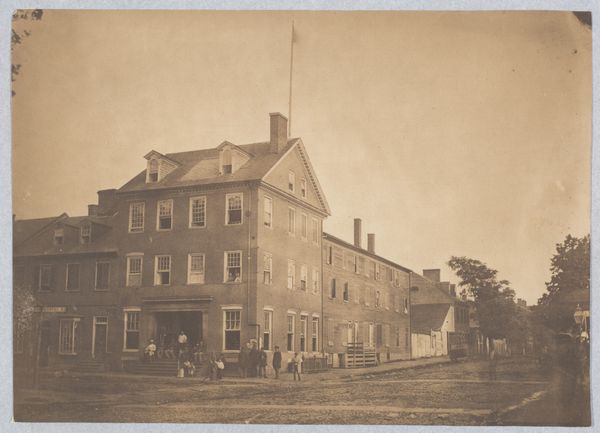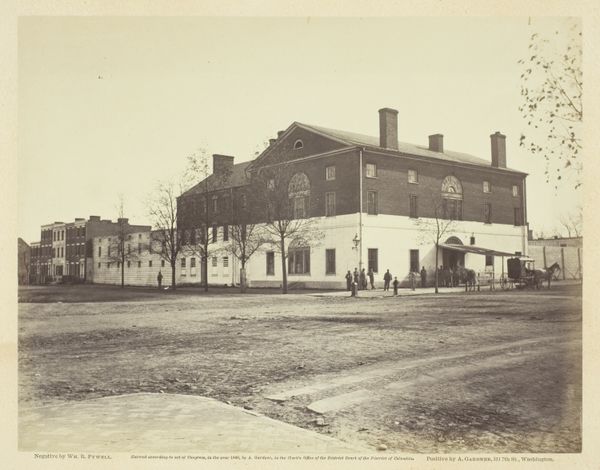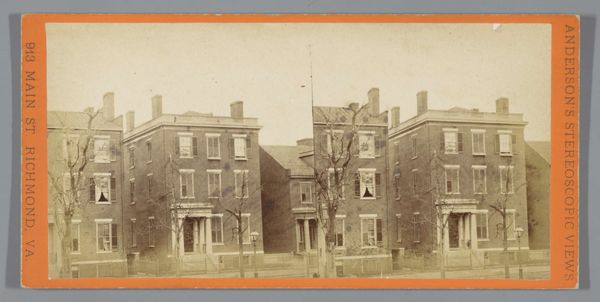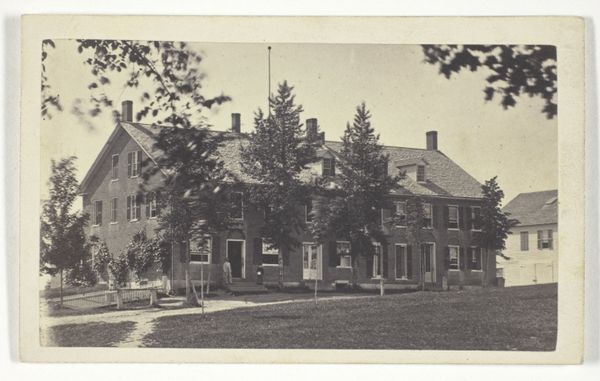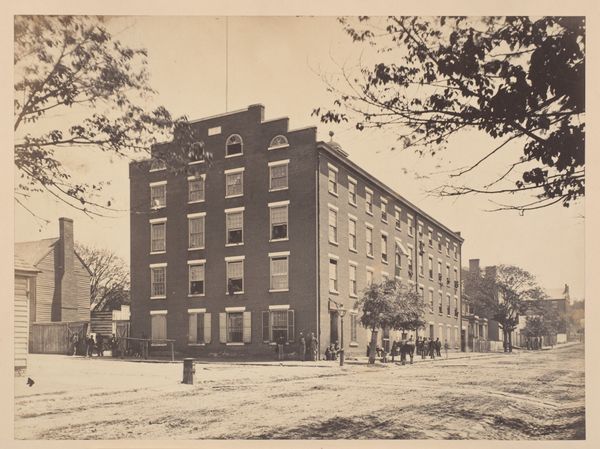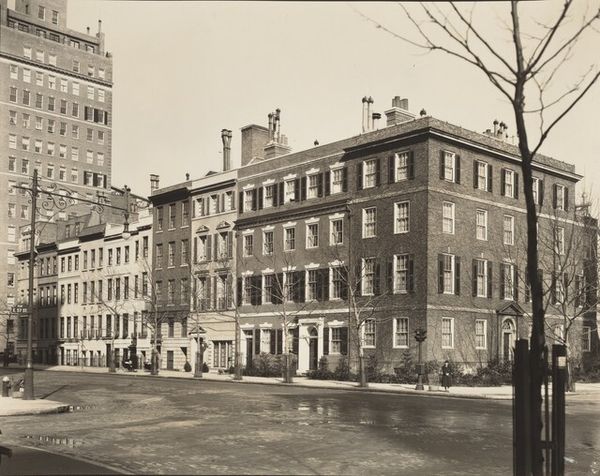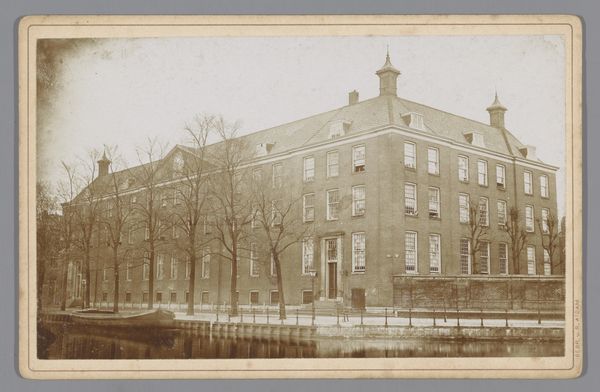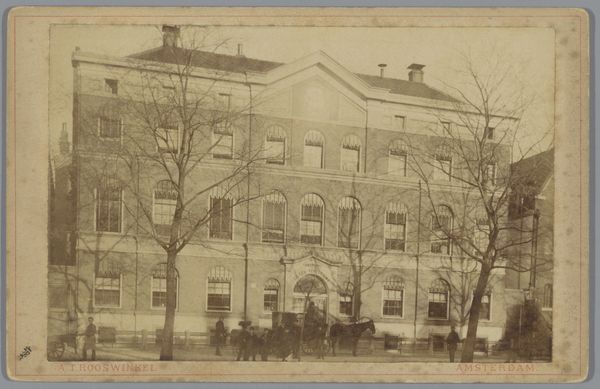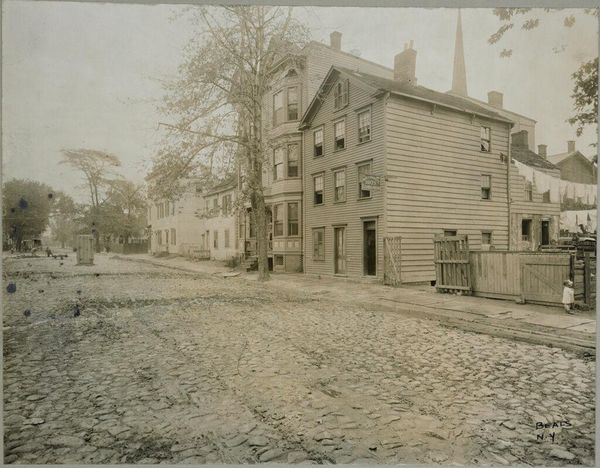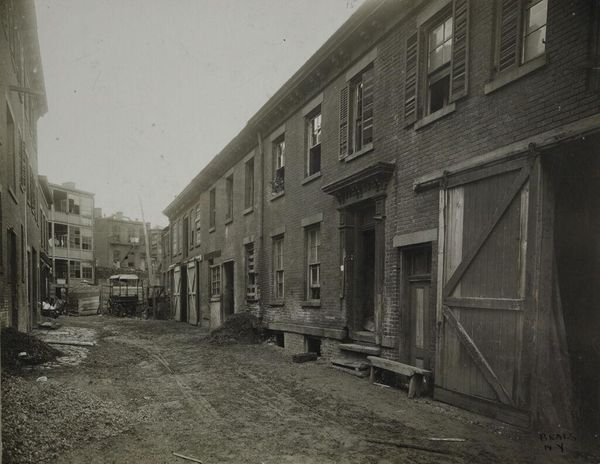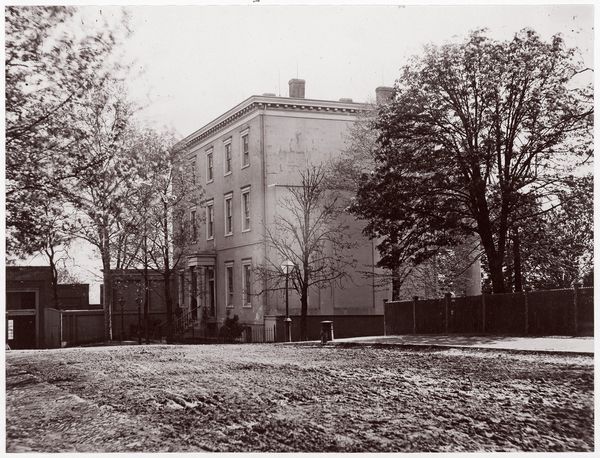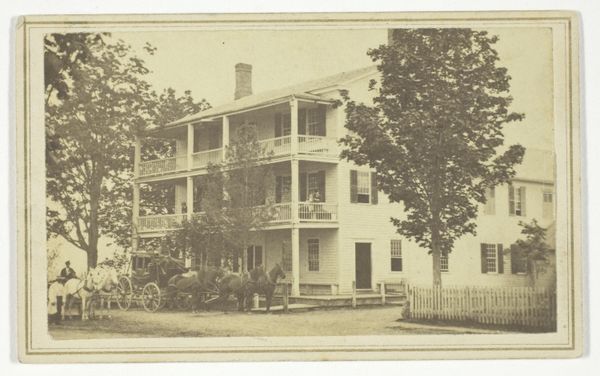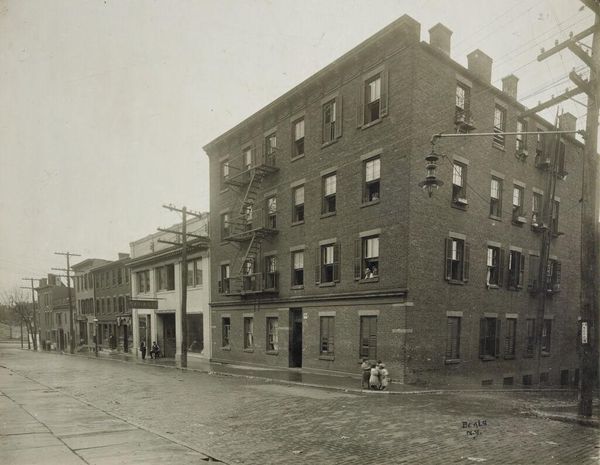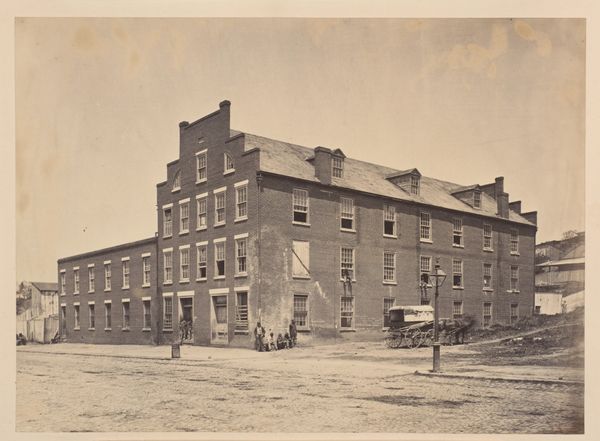
print, photography, albumen-print
# print
#
landscape
#
photography
#
cityscape
#
albumen-print
#
realism
Dimensions: 17.3 × 22.5 cm (image/paper); 31.2 × 44.3 cm (album page)
Copyright: Public Domain
Editor: This is William Pywell's "Marshall House, Alexandria, Virginia," an albumen print from 1862. I'm immediately drawn to the texture of the brick and how the light falls across the street. What stands out to you in this photograph? Curator: For me, this image isn't just a portrait of a building; it's a document of labor and production. Consider the albumen printing process. Each print was a laborious act, involving coating paper with egg whites and silver nitrate. What does it tell us that this time-consuming, chemical-intensive process was employed to capture something as seemingly mundane as a building? Editor: That's a great point. It's not just pointing the camera and shooting; it's a whole chemical and manual process. Does the choice of material—the albumen print—influence how we perceive the image's subject? Curator: Absolutely. Albumen prints, though seemingly mass-produced, each carry a unique fingerprint due to the hands-on process. The clarity and tonal range achieved are deliberately chosen effects, lending a sense of importance and permanence to the image, shaping our understanding of the site. Do you see any traces of human activity and commerce, beyond just the structure? Editor: Now that you mention it, there's some sort of cloth or decoration for sale in the shopfront windows down the street. Plus, the building itself is a hotel, "Marshall House," so labor must happen in every room. It seems deceptively still, but the image hints at the busy production happening within the spaces captured. Curator: Precisely. So, we must consider who commissioned it and for what purpose. Perhaps it was intended to project an image of progress and order in a time of intense social upheaval. The photograph is thus not just a depiction but also an instrument in shaping perception and power dynamics. Editor: It's fascinating how understanding the production process adds so many layers to the viewing experience! It changes everything. Curator: Indeed. By examining the materiality, we gain insights beyond the purely representational.
Comments
No comments
Be the first to comment and join the conversation on the ultimate creative platform.
